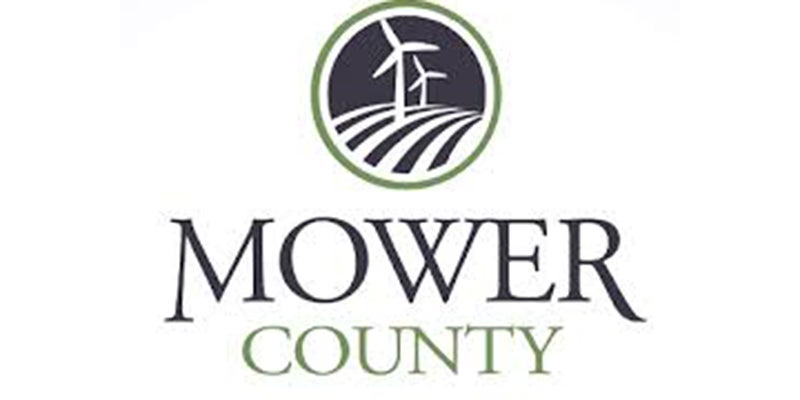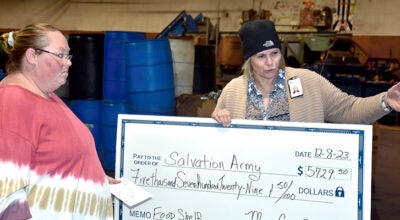Local lawmaker embraces health exchange bill; business owners not enthusiastic
Published 10:45 am Wednesday, March 6, 2013
The health insurance exchange proposal is moving through the Legislature, and while Democrats say it will help small business owners or the self-employed find affordable coverage, Republicans argue it will raise costs for others.
The Minnesota House passed a bill Monday establishing the state’s health insurance exchange, the first step toward enactment of an online marketplace that aims to give more than a million Minnesotans a new place to purchase affordable health insurance.
Rep. Jeanne Poppe, DFL-Austin, notes the exchange, which is part of the Affordable Health Care Act, is not a health care plan. It will be an online marketplace where private insurance companies can show their rates, so any Minnesotan looking for insurance coverage could compare plans and prices. Potentially, this could help small business owners and those who are self-employed, like farmers, compare health insurance coverage, Poppe said.
“For consumers it should help them to have a clear understanding of their options,” Poppe said.
The hope is that if insurance companies were advertising rates all on one website, it could reduce premiums or insurance costs. But not everyone believes that, and Austin insurance salesman Chuck Moline said the exchange website won’t be a free market system.
“The exchange is only going to be effective as long as the choices for people, individuals and employers aren’t limited by a small board,” Moline said. “The bill that is being proposed will regulate or further confine choice.”
Moline said small business owners especially will find it difficult to provide insurance for their employees with the various regulations of the national Affordable Care Act. He actually has a software program where businesses can find out whether it’s more cost effective to insure their employees or pay the penalty for not providing insurance to employees who would then have to find their own coverage if they wished.
“Business owners are still reeling coming off two or three bad years of business and now we’re looking at all of these additional costs for health care,” Moline said. “Truly large employers don’t have a lot of issues with Obamacare, but smaller employers might just get out of having health care all together.”
One part of that national act stipulated that citizens have access to an online marketplace. States have the opportunity to create their own online exchange website, but if legislation is not passed by March 31, those states’ residents will have access to a federal exchange website.
Sen. Dan Sparks, DFL-Austin, said he hasn’t directly worked with the bill yet. The Senate bill is due for a floor debate and vote on Thursday. Then differences would have to be reconciled in a House-Senate conference committee and a bill would need to appear before Gov. Mark Dayton by the end of the month. Sparks said he thinks the bill will be a boon for Austin residents, as well as the entire state.
“Minnesota has always been a leader in health care in the past,” Sparks said. “We want to make sure we get it right.”
Republicans complained that lawmakers were investing major state resources and time in an experiment. They raised concerns the exchange would drive insurance costs up for many Minnesotans, that participants would lose access to favorite doctors and that private medical information might not be closely guarded.
“Welcome to the Democrats’ health care exchange: less choice, more cost, no privacy,” said Rep. Kelby Woodard, R-Belle Plaine.
But Rep. Joe Atkins, the chief House sponsor, called the bill creating a health insurance exchange “the most significant health reform in 50 years” — since Medicare and Medicaid were created in 1965. The exchanges are a centerpiece of the federal health care overhaul.
The House approved the bill 72-58 on a nearly party-line vote, after a debate that lasted more than five hours. One Republican and one Democrat crossed party lines: Rep. Jim Abeler, R-Anoka, supported the bill, while Rep. Laurie Halvorsen, DFL-Eagan, voted against it.
Atkins said the average annual savings in health premiums for participants is projected to be $490. Some will save more while others earn too much money to qualify for tax credits for participants under certain income levels.
“Even the cheapest one will be a dramatic improvement over what most people in Minnesota currently have,” Atkins said, explaining that provider networks would be bigger and deductions and co-pays smaller. He said the website would be like sites where travelers compare and purchase plane tickets or hotel reservations, offering a range of insurance policies for consumers to choose from after they’ve entered personal information.
District 27A Rep. Shannon Savick, DFL-Wells, voted in favor of creating the exchange. “Health insurance is something that all families need,” Savick said. “But right now, thousands of families have a very tough time finding plans that are affordable. This exchange will act as a kind of one-stop shop for finding which plans work for you.”
The exchange will be governed by seven people appointed by the governor and subject to approval by the House and Senate. Its expected operating costs of $60 million a year would be covered with a fee on premiums of up to 3.5 percent. That’s a key difference with the state Senate’s health care exchange bill, which instead taps money from a state tobacco tax.
Dayton, whose administration has worked to help implement the exchange, acknowledged the risk involved with the exchange bill.
“It’s a big gamble,” Dayton said during a Minnesota Public Radio call-in show. “I’m sure there are going to be glitches. There has to be glitches with something of this enormity.”
—The Associated Press contributed to this report.




